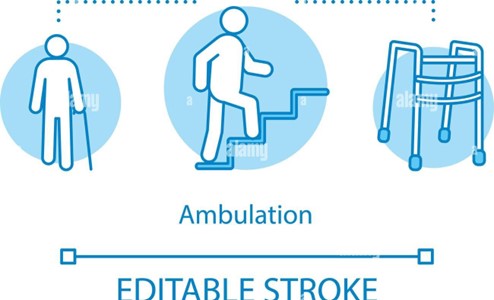A patient presents to the Emergency Room with swollen legs and shortness of breath. He tells you that he has a history of heart failure which causes the fluid to build up m his legs and lungs. When you listen to his lung sounds you are most likely to hear which type of breathing sounds?
Rales
Crackles
Rhonchi
Stridor
The Correct Answer is B
Crackles, also known as rales, are discontinuous sounds that are typically heard during inspiration in patients with heart failure. These sounds are produced by the sudden opening of small airways and alveoli that are filled with fluid or collapsed due to pulmonary congestion. The sound can be described as similar to the sound of rubbing hair between fingers or the sound of Velcro being pulled apart.
Rhonchi are continuous, low-pitched sounds that are typically heard during expiration and are caused by the movement of air through narrowed airways, such as in patients with chronic obstructive pulmonary disease (COPD). Stridor is a high-pitched, continuous sound that is typically heard during inspiration and indicates upper airway obstruction, which can be life-threatening. Neither rhonchi nor stridor are typically heard in patients with heart failure.
Therefore, based on the patient's history and symptoms, the most likely type of breathing sound to be heard on auscultation is crackles/rales.

Nursing Test Bank
Naxlex Comprehensive Predictor Exams
Related Questions
Correct Answer is B
Explanation
Fluid retention is a common complication in heart failure, and monitoring the client's fluid status is crucial to manage the condition effectively. Daily weights are an essential component of monitoring fluid status and are the most sensitive and practical method to detect changes in the client's fluid status. Weight gain is a reliable indicator of fluid retention, and even small increases in weight can indicate the need for changes in the client's treatment plan.
Although electrolyte monitoring (option a), output measurements (option c), and daily BUN and serum creatinine monitoring (option d) can provide valuable information about the client's fluid status, they are not as sensitive or practical as daily weights. Electrolyte monitoring can help detect changes in fluid balance, but it does not provide a direct indication of fluid status. Output measurements can indicate fluid loss, but they do not provide an accurate assessment of fluid retention. BUN and serum creatinine monitoring can detect changes in renal function, but they are not specific to fluid status.
Correct Answer is B
Explanation
Chest tubes are inserted to drain fluid, blood, or air from the pleural space, which is the space between the lung and the chest wall. It is important to ensure that the chest tube is secured properly and the drainage system is functioning properly before the patient is ambulated. Additionally, the patient may experience discomfort or pain during ambulation, so it is important to assess and manage the patient's pain before and after ambulation.
Option A is not appropriate because it disregards the patient's need to use the restroom and may make the patient feel helpless or dependent.
Option c is not appropriate because it does not address the patient's request for assistance and may make the patient feel neglected or uncared for.
Option d is not appropriate because it is a directive statement that does not take into account the patient's autonomy or individual needs. It is important to involve the patient in the decision-making process and provide appropriate care based on their individual needs and preferences.

Whether you are a student looking to ace your exams or a practicing nurse seeking to enhance your expertise , our nursing education contents will empower you with the confidence and competence to make a difference in the lives of patients and become a respected leader in the healthcare field.
Visit Naxlex, invest in your future and unlock endless possibilities with our unparalleled nursing education contents today
Report Wrong Answer on the Current Question
Do you disagree with the answer? If yes, what is your expected answer? Explain.
Kindly be descriptive with the issue you are facing.
